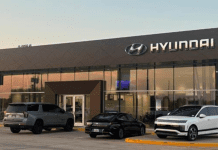Today on Inside Automotive, we’re pleased to welcome back Erin Kerrigan, Founder and Managing Director of Kerrigan Advisors, who shares her insights and expertise into the current state of the buy/sell market.
To the surprise of many, 2022 got off to a stronger start than 2021. Q1 2022 earnings surpassed prior Q1 2021 earnings as well. There are stockpiles of cash in dealer pockets and most want to use that capital to expand, explains Kerrigan. There is still tremendous opportunity in the auto industry, despite troubling economic factors.
Auto retail is a counter-cyclical business. If a recession does come, the industry will likely still do well.
“[Automotive retail] is almost a perfectly hedged business model with a high variable cost structure that really makes it sustainable through thick and thin,” says Kerrigan.
Interestingly, even in the inflationary environment, auto dealers are not immediately affected because most of the expense structure is variable and customers have more equity in their trade-ins. Kerrigan Advisors expects that Wall Street, in particular, will take note of the industry, which is outperforming other retailers. comparatively outperform other retailers.
In regards to OEM brands, demand for Toyota and Lexus franchises is off the charts. The partnership model these two brands have with the dealer network is attractive to potential buyers and is reflected in the valuations.
Population growth is driving enormous M&A activity in states like Colorado, Florida, and Texas. In 2021 17% of dealerships in Colorado were sold. At that rate, it would only take six years for every dealership in the entire state to be sold, says Kerrigan.
Dealers in every market are looking to expand their scale. Even though there is demand outside of markets for states like Florida or Texas, Kerrigan Advisors is seeing demand for almost every franchise in every market because local dealerships are buying out each other, she adds.
“In general, we’re finding that most transactions are being priced on an expectation of normalized earnings once supply meets demand,” explains Kerrigan.
Did you enjoy this interview with Erin Kerrigan? Please share your thoughts, comments, or questions regarding this topic by submitting a letter to the editor here, or connect with us at newsroom@cbtnews.com.
Be sure to follow us on Facebook and Twitter to stay up to date or catch up on all of our podcasts on demand.
While you’re here, don’t forget to subscribe to our email newsletter for all the latest auto industry news from CBT News.









